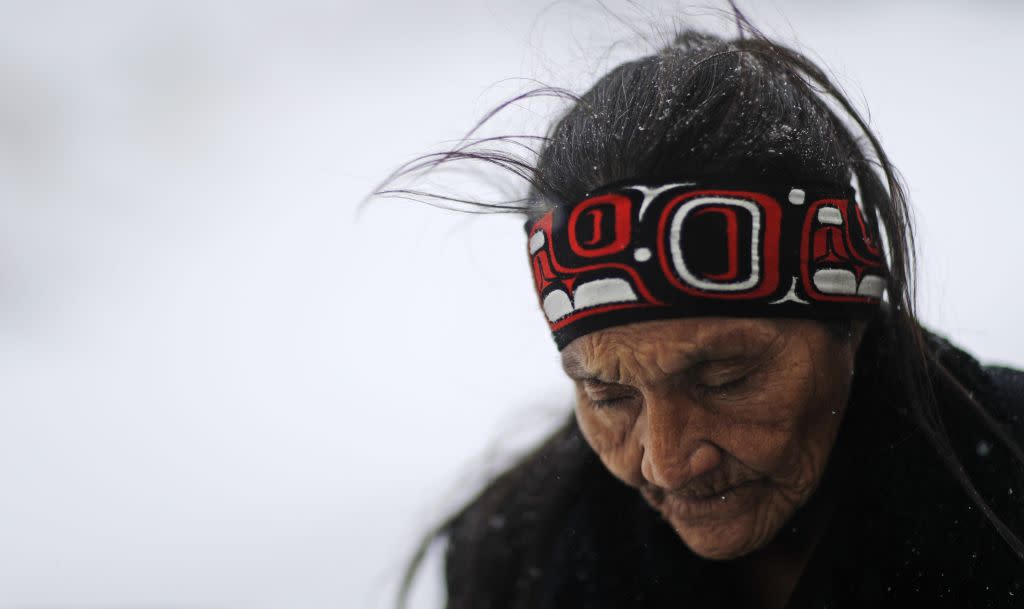If Israelis have the right of return, we should extend that right to all native people

Since the right of return principle of international law was ratified in 1948, millions of people all over the world have returned to their native lands and countries. And despite the right to re-enter your country of origin or citizenship being enshrined in numerous modern treaties—such as 1948 Universal Declaration of Human Rights, the 1966 International Covenant on Civil and Political Rights, and the 1948 Fourth Geneva Convention—not all natives have been accorded similar dignities.
From Israelis in Palestinian lands to Caucasians displacing native Americans to Argentines whitening policy against black natives, the right to return—and the conflict that follows it—plagues many countries. It’s blatant hypocrisy: Western colonialists are giving themselves a right that they don’t give to the communities they displaced.
What’s happening in Palestine and Israel is of particular concern. Despite small advances, Israel continues to carry with it occupational and imperialistic ambitions that exclude Palestinian people.
The world explicitly gave Israel the right of return under an Israeli law passed in 1950, which gave Jews the right to come and live in Israel and to gain Israeli citizenship. The law was further extended in 1970 to include those with Jewish grandparents. Meanwhile, Palestinians continue to be locked out of their ancestral occupied lands and denied rights and freedoms. This denial has ensured that Palestinian people remain stuck within never-ending dehumanizing conditions, disease outbreaks, food and housing shortages, violence, and social instability.
But what if they applied the same fervor they use to justify their human-rights abuses to other populations?
Why isn’t this right extended to Palestinians, Rohingyas in Myanmar, and Roma people in Europe? If Israelis have the right of return, Africans and Native Americans and every other native community should have a right of return to their land. Since transatlantic slavery started in 1619 to when it was abolished in 1807, nearly 12.5 million Africans were shipped to the Americas. Many now feel stuck between an America that doesn’t respect them and an Africa that they’ve never been to.
Unlike the Jews, African Americans do not have the privilege of retuning to Africa. Besides Haiti seeking a position in the African Union and Ghana extending the right of return for African Americans, there isn’t much black descendants are being offered. What if African Americans were given a right to return to their forefathers’ lands?
It unfortunately wouldn’t look the same as it did centuries ago—because the same thing is happening with internally displaced populations inside Africa. The first genocide in Namibia was of the Herero people, who were killed by the Germans. If you go to Namibia today, the descendants of the Herero survivors are landless, and the Germans still occupy their lands. The same problem is encountered in Zimbabwe, where 4,000 Western farmers own a majority of the land, Kenya where roughly 10 families own nearly 2.5 million acres, and South Africa where white farmers own 70% of the land.
But the Germans can still go back to Germany. If you came to South Africa as a Dutch colonialist, you can go back to the Netherlands. If you came to Zimbabwe when Mugabe took the land, the British can go back to Britain. Australians can go back to England and leave the land to the aboriginal people, the French can leave Reunion, and the Portuguese can leave Brazil.
But the problem is that unlike Europeans and Americans who ostensibly have land to go back to, an African has no place to go. Even here in Kenya, there’s little land for me because settler grabbers still occupy lots of the property they took under colonialism.
And it continues. There has been a new land grab in Africa under the guise of foreign investment. Centuries ago white Westerns forcibly took our land from us: Now Chinese and Arab programs are establishing ranches, signing opaque industrials treaties, and creating commercial farming practices that further distance us from our ancestral origins. When will it stop?
If Israelis have a right to return—and so do the Dutch, Germans, French, and Britons—why not Africans? Why isn’t this right extended to Palestinians, Rohingyas in Myanmar, and Roma people in Europe? Why are native American lands desecrated, their tombs unearthed, and their people still forcibly displaced by white companies in the name of profits?
How long are we going to continue to deny that we are all interconnected? Borders and boundaries are collapsing or becoming more fluid. Communities that were separated by slavery, war, and colonialism are reuniting. Lots of people are rediscovering and connecting with their ancestries and communities.
It is time for policy makers, families, legal scholars, governments, and societies to begin reimagining identity and its connection to history and ancestral lands. Nation states are no longer as powerful, and lots of people want to reimagine their nationalities and identities. If we don’t protect their right to do so, we will lose connection to our cultures—as well as our lives.
Sign up for the Quartz Daily Brief, our free daily newsletter with the world’s most important and interesting news.
More stories from Quartz:

